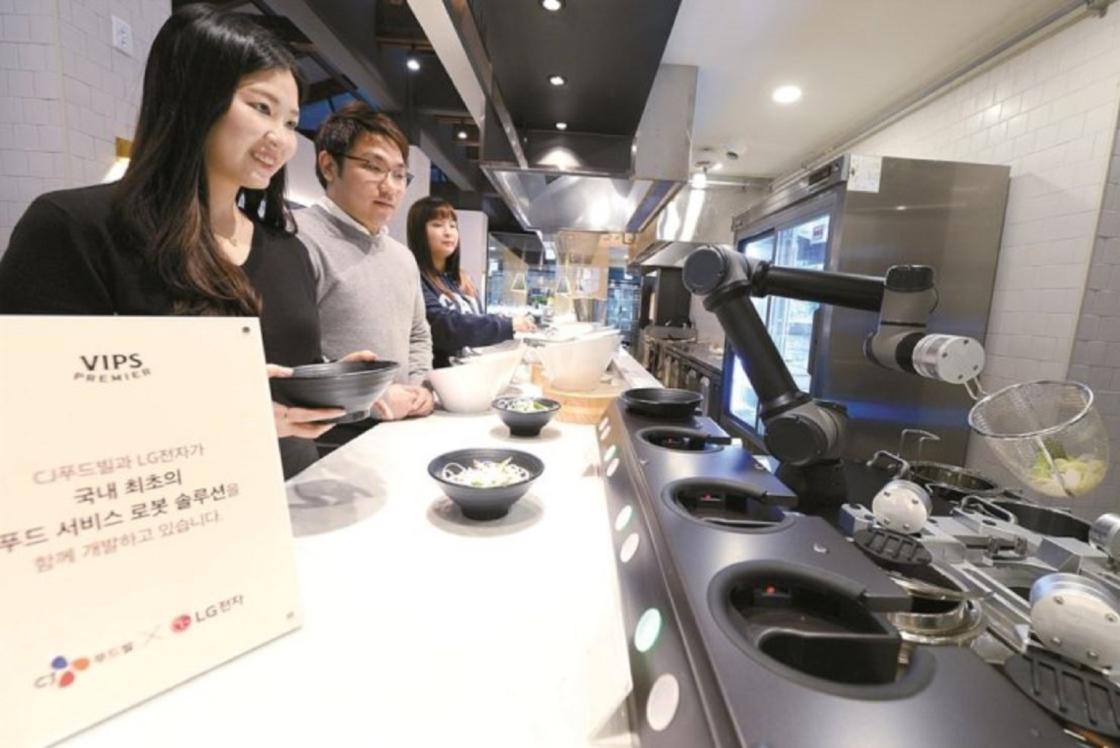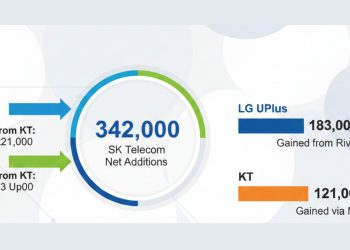Korea’s food and beverage industry boosts usage of robots in food and beverage services and even for basic task completions such as making noodles in under a minute.
Restaurants will use more robots with the advancement of robotic technologies and soaring demand. Robots would replace human employees for routine and repetitive tasks, industry officials said.
Tech giant, LG Electronics, said it deployed a robot chef dubbed the CLOi Chefbot in a Seoul branch of VIPS restaurant. The company launched the robot in cooperation with CJ Foodville, a family restaurant chain operator.
The CLOi Chefbot’s role at the restaurant is cook different types of noodles in less than a minute. The restaurant allows the customers to assemble all-you-can-eat noodles. The visitors put the ingredients they select in a bowl and transfer it to the robot chef, then CLOi would prepare the food for consumption.
LG, in partnership with CJ Foodville, has been developing chef and serving robots for restaurants since April. CJ Foodville is a subsidiary of CJ Group, a food and entertainment conglomerate.
In a bid to spare employees from having to experience hazardous, physically demanding, and repetitive tasks, the two companies decided to install the noodle-making robot chef in the establishment.
An LG official said, “This is the first time that LG launched a robot chef to a restaurant. CJ Foodville helped us a lot in developing the CLOi Chefbot as they advised where the robot chefs can be used the most efficiently.”
“We expect the chef robot will reduce repetitive and dangerous tasks and will subsequently enable restaurants to focus on better serving their customers.”
Roh Jin-seo, head of LG’s robotics business, saw the installment of the CLOi Chefbot as an initial success and stated that the two companies plan to increase the presence of chef robots.
“Thanks to the cooperation with CJ Foodville, LG could offer differentiated value to customers. We will try to find more ways to utilize robotics in the food and beverage sector to provide enhanced customer experience and improve its competitiveness in the robot business,” Roh said.
Companies other than LG are actively trying to develop and utilize more advanced robots in the food and beverage industry.
KT, a mobile carrier, operates robot baristas at a local coffee house franchise Dal Komm Coffee’s stores since December 2018 in Seoul.
The robot baristas receive orders remotely through a mobile application or kiosk cashier and make freshly brewed coffee using an espresso machine. KT powers the robots with the company’s artificial intelligence (AI) technologies and fifth-generation (5G) network.
Samsung Electronics also developed the Samsung Bot Chef, a cooking assistant robot, which the company displayed at the Las Vegas Kitchen & Bath Industry Show (KBIS) last January.
The robot can chop or cut ingredients and mix sauces with its robotic arm. This robot benefits not only general users but also disabled people.
Demand for adopting robotics will increase in the food and beverage industry because companies can replace much of the manual labor by human employees and address labor cost issues, an industry official.
“Bringing in robotics to the kitchen is expected to rise as companies can reduce a large amount of manual labor of their employees and proactively respond to rising labor costs. Also, by letting robots do hazardous and routine jobs, companies can efficiently use their resources and focus more on improving customer service,” the official said.







